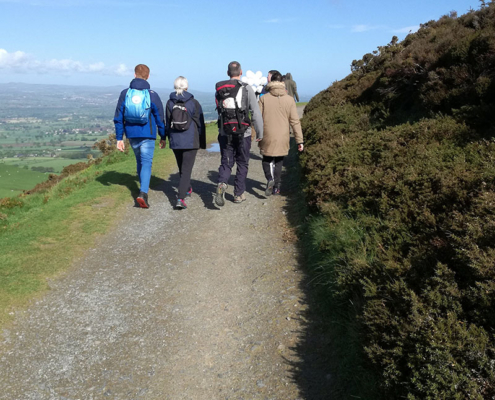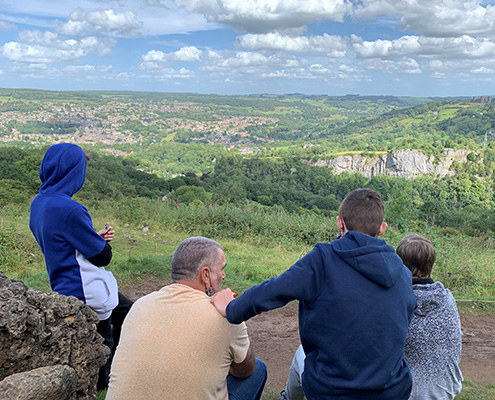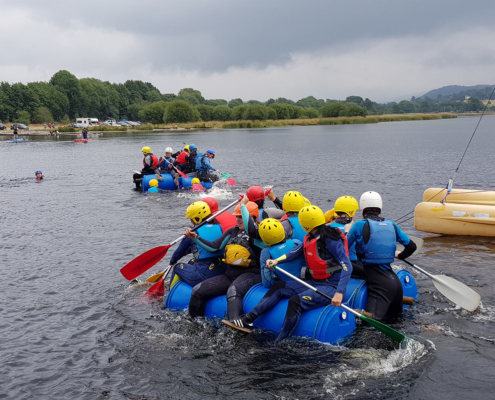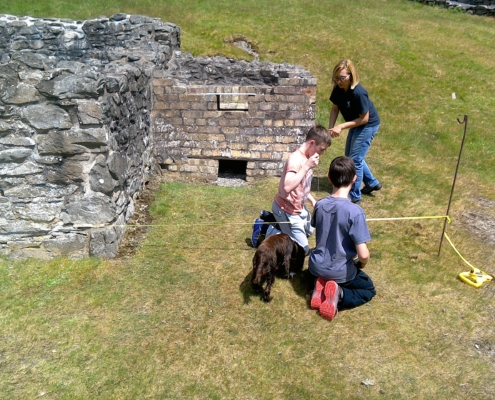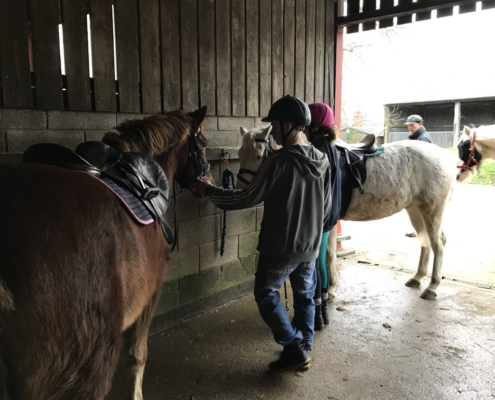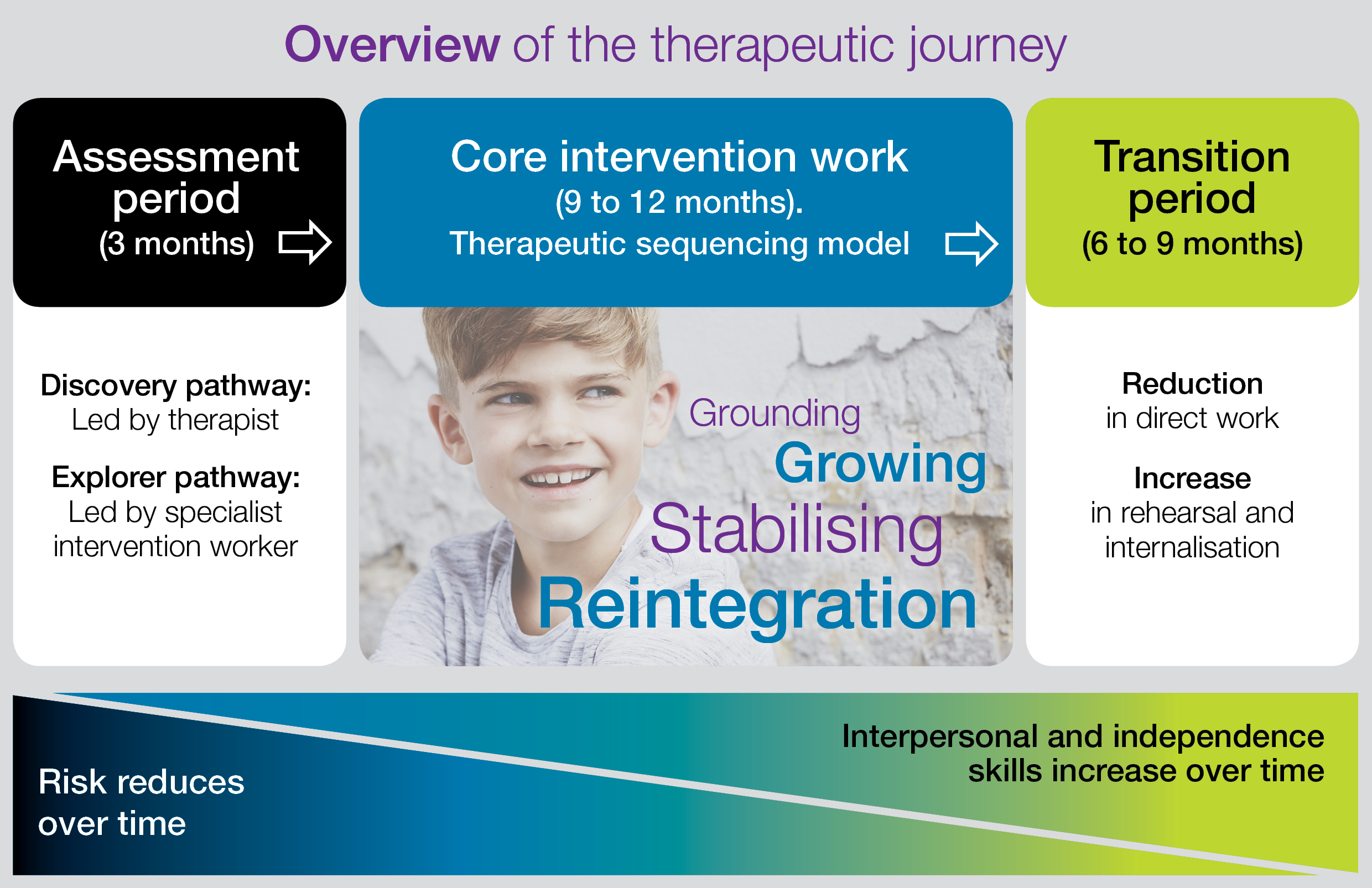Our Therapy
Our therapeutic framework is
measured by its continued success
Therapy is probably the most misunderstood element of our work as many people think that it is in the 1:1 sessions that all the work is undertaken. Direct work in 1:1 sessions is an important part of our approach and all young people have an allocated session every week as part of their programme. However, the therapy at Amberleigh Care is systemic and integrated across the whole service but overseen by our in-house clinical team.
The team is led by a Forensic Psychologist with a long background in both working with offenders and in therapeutic communities.
She leads a multi-disciplinary team of therapists who are trained in a wide range of models and approaches. This allows the ‘type’ of therapy to change with a young person to match their developing needs across the length of stay, models include: psychotherapy, CBT, EMDR, Schema Focussed Therapy, and Life Story Work to name a few.
Therapy is much more than the 1:1 delivery. The whole system is part of the therapy and the team contribute in a range of ways including:
- Initial 12 week and then ongoing assessments using a range of evidence based tools
- 1:1 direct work with young people through weekly sessions
- Clinical supervision to care and education staff
- Group supervision with care and education teams (Dynamics) looking at the day to day functioning in the community
- Group supervision with care teams (Sensitivity) providing support to staff in managing the practice with the boys
- 3 monthly review of all elements of the placement including risk management
- Staff training
- Family work
“We notice if someone is feeling sad or angry and we try and help so they don’t feel alone”
Explorer pathways are aimed at young people who may have a diagnosis of a moderate or severe developmental delay, learning difficulties or a disorder such as FASD or ASD. These difficulties directly impact on their ability to meaningfully engage within a typical psychotherapy setting and they may require a highly structured, concrete approach to developing their social and emotional skills.
As each young person progresses through their time at Amberleigh, their therapeutic needs and how this is delivered needs to change and adjust with them as there internal skills develop. We have a clear stages approach to the therapeutic component of the young persons journey.
This technical element of the work is integrated with the activities of care and education within the intervention framework of the Good Lives Model. This is a defined approach to working with adolescents who have displayed inappropriate and harmful sexualised behaviour. It takes a holistic, strengths based approach to the management and reduction of risk. It draws on positive psychology to both address offending and abusive behaviours but also to build up resilience, pro-social functioning and other protective factors. It is the most recognised model in working with this client group and is well recognised by social services, youth justice, probations services and specialist education settings in this country and overseas. For more information on the Good Lives Model click here.
All of this activity is delivered in the context of the Therapeutic Community model for group living – a highly structured and evidence based approach for living and learning that encompasses care, education and therapy functions. This relationship based approach places safety and boundaries at its foundation. It then uses all elements of day to day living and being with others (adults and children) as opportunities to practice and learn how to be in relationship with others. We follow and are externally measured against a set of Service Standards for Therapeutic Communities which are held and overseen by the Royal College of Psychiatrists.
We are subject to self evaluation and annual peer review to continually develop our practice and Golfa Hall has now achieved Accredited Status – the first service of its kind in Wales and only the 5th to achieve this in the UK. For more information on the evidence base for Therapeutic Communities, please click here.


